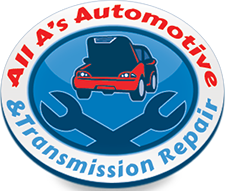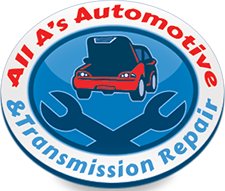Auto Oil Leaks: When to See A Mechanic

 We all know the dread of finding an unexpected motor oil puddle under our car. Fortunately, oil leaks are pretty common and don’t always indicate a major problem. However, if ignored, a small leak can grow into a much bigger issue. Engine oil is essential for the well-being of your vehicle. It provides lubrication, reduces friction, and dissipates heat in the engine. Therefore, it’s wise to visit a qualified mechanic for even minor oil leaks. Let’s explore the many functions of engine oil and the potential issues from oil leaks.
We all know the dread of finding an unexpected motor oil puddle under our car. Fortunately, oil leaks are pretty common and don’t always indicate a major problem. However, if ignored, a small leak can grow into a much bigger issue. Engine oil is essential for the well-being of your vehicle. It provides lubrication, reduces friction, and dissipates heat in the engine. Therefore, it’s wise to visit a qualified mechanic for even minor oil leaks. Let’s explore the many functions of engine oil and the potential issues from oil leaks.
Function of Engine Oil
Engine oil (or motor oil) performs several essential functions for your vehicle’s engine. Maintaining a proper oil level ensures the engine components operate without excessive wear and damage.
- Provide Lubrication: Engine oil lubricates moving parts, reduces friction, and prevents excessive wear and tear.
- Reduce Engine Debris: Oil carries away debris and combustion by-products through the oil filter. This helps to keep the engine clean and free from harmful deposits.
- Dissipates Heat: Motor oil helps dissipate heat generated by the engine and prevents it from overheating.
- Corrosion Prevention: Most engine oils contain additives that help protect internal engine components. The oil coats the moving parts and prevents oxygen and water vapor from causing corrosion and rust.
Issues From Motor Oil Leaks
When motor oil leaks occur, it can compromise many different components in the engine. Ignoring or delaying an oil leak service can have long-lasting consequences. It can also result in the premature replacement of expensive parts.
- Engine Damage: Engine parts rely on a constant oil supply for lubrication. Insufficient oil can increase friction, overheating, and accelerate engine wear. Over time, this excessive wear can lead to irreparable damage to the pistons, camshafts, or crankshafts. Once damaged, these parts will need to be replaced.
- Loss of Performance: Inadequate lubrication can impact engine performance. The engine may experience reduced power, decreased acceleration, and rough idling. Ignoring these performance issues can exacerbate engine damage and compromise road safety.
- Increased Fuel Consumption: Oil leaks decrease oil levels in the engine, resulting in the engine not functioning optimally. Increased fuel consumption can often be due to low engine oil levels.
- Environmental Impact: Oil leaks that seep into the ground or water supplies pose a significant environmental risk. Engine oil contains harmful chemicals that can cause long-term ecosystem damage.
Find A Qualified Mechanic
Our qualified mechanics at All A’s Automotive will quickly diagnose and repair your motor oil leak issues. While it may be tempting to address minor oil leaks as a DIY project, seek help from a qualified mechanic instead. Don’t compromise your safety or your vehicle’s integrity. Here’s why:
- Accurate Diagnosis: Oil leaks can be symptomatic of more significant underlying issues. A qualified mechanic uses their experience to quickly identify the source of the leak.
- Effective Repair: Auto service technicians have the skills and specialized tools to repair engine oil leaks effectively.
- Factory Recommend Oil: Not all motor oils are the same. Auto manufacturers recommend specific motor oil types and brands for their vehicles. Your service technician can guide you through the best options for your car and your driving needs.
- Warranty Concerns: Attempting DIY repairs may void existing warranties. Getting professional service maintains your factory warranty coverage.
- Risk Mitigation: Hiring a qualified mechanic minimizes the risk of creating other repair problems or improper reassembly.
Oil Leaks: Schedule Service Now
Whether you drive an Acura, Ford, Chevy, or Volkswagen, All A’s Automotive will keep your car in great shape. Call us today at (989) 631-4672 or visit our website to schedule an oil leak service appointment.
Posted in: Engine Oil
Leave a Comment (0) ↓
